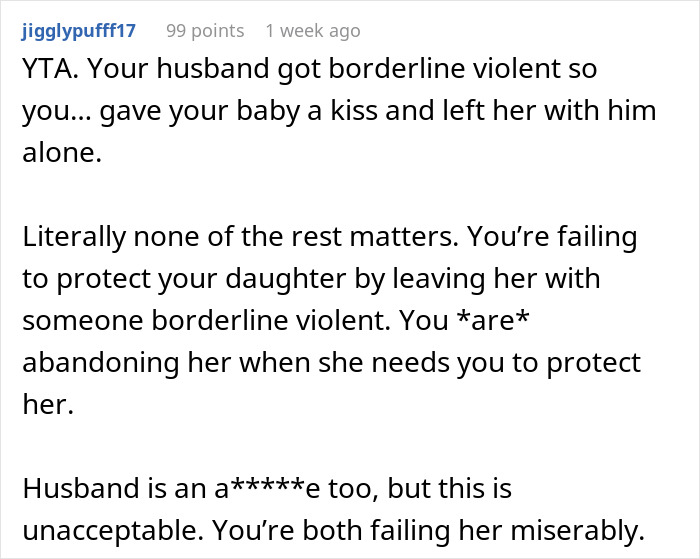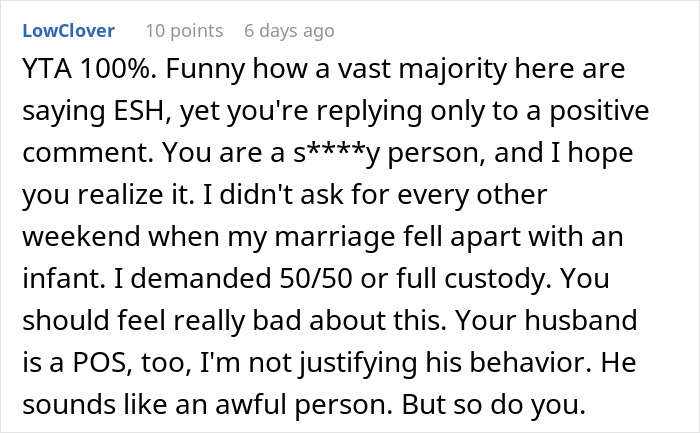Even though most women are naturally able to have children, not all of them are made out of mother material. And we, as a society, are doing a great job at spreading the message that motherhood is a choice, not the inevitable or obligation, making people already more accustomed to this idea. However, there are still times when women crumble under societal pressure, which leads them to make choices they don’t necessarily want.
This Reddit user recently shared how she was set on not having children but her partner said all the right things to convince her otherwise. After she gave in and endured a traumatic pregnancy and postpartum period, her husband decided to leave. Despite him wanting a clean slate, she wasn’t going to be a single mom and passed the full daughter’s custody to him, turning the tables around.
Scroll down to find the full story and conversation with Christina Rhyser, parental wellness educator, coach, and founder of Parental Burnout Center, who kindly agreed to talk with us more about non-custodial mothers.
Admittedly, not all women are made to be mothers

Image credits: Maierean Andrei / pexels (not the actual photo)
This Redditor felt like she definitely wasn’t cut out to be a mom, but her partner convinced her otherwise, and now she’s suffering the consequences
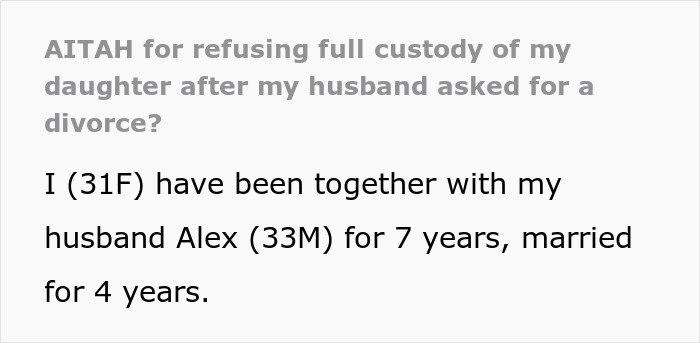
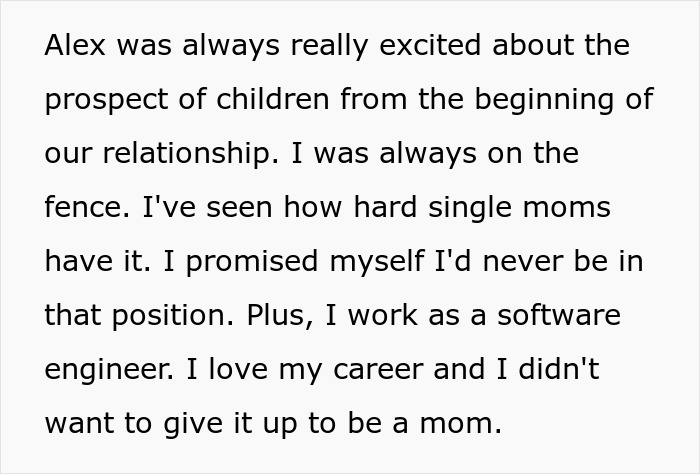
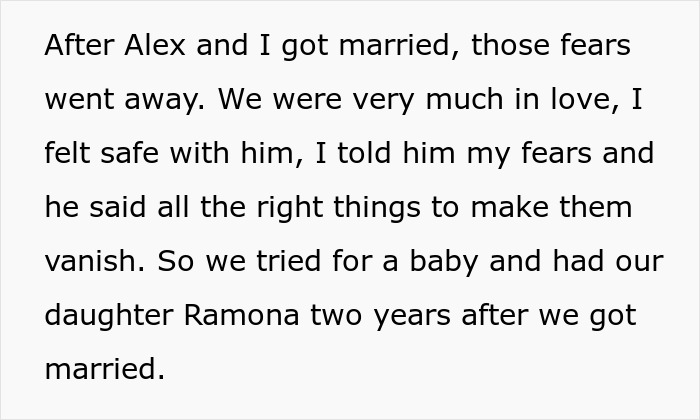
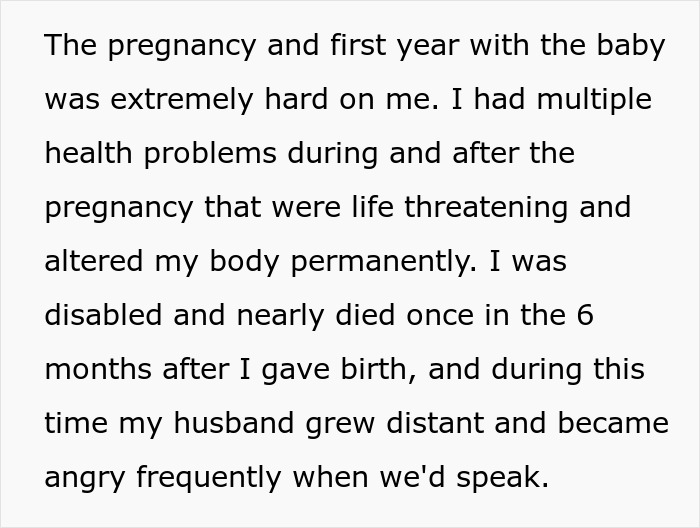
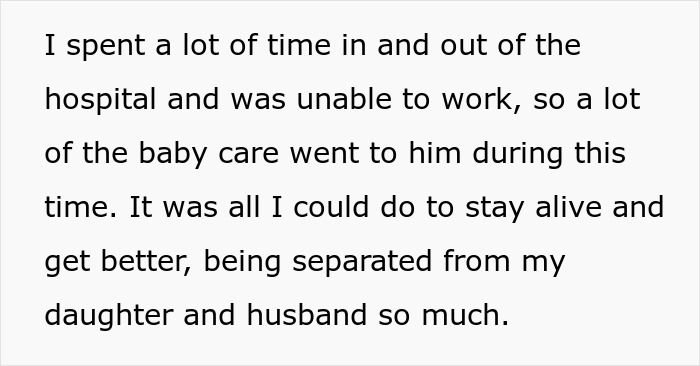
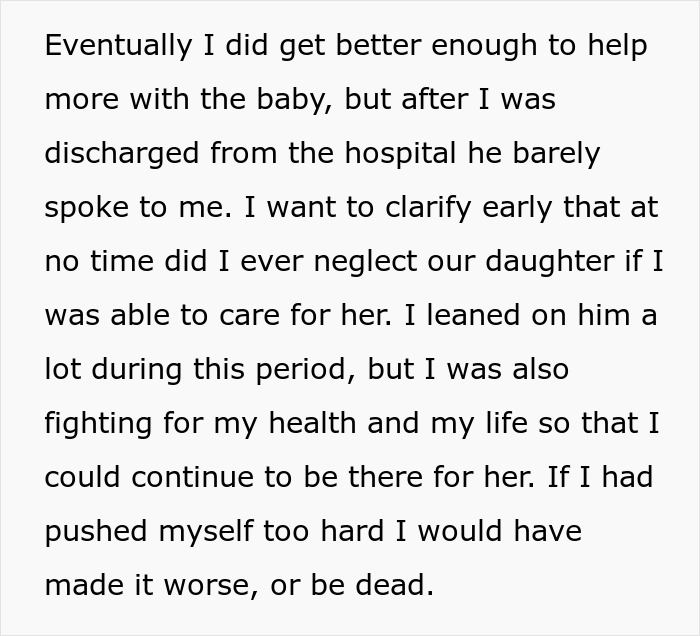
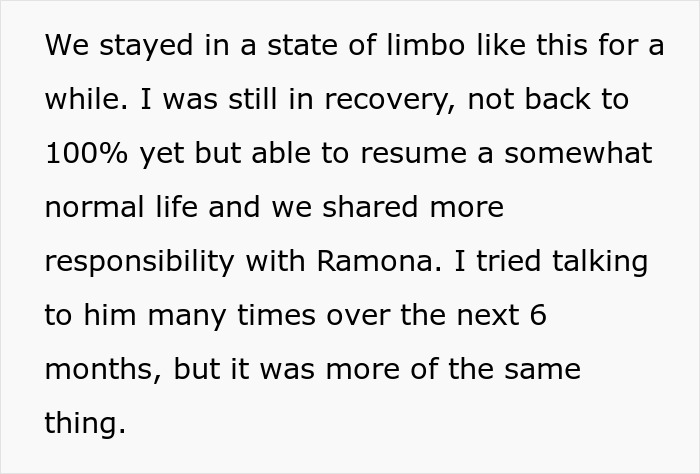
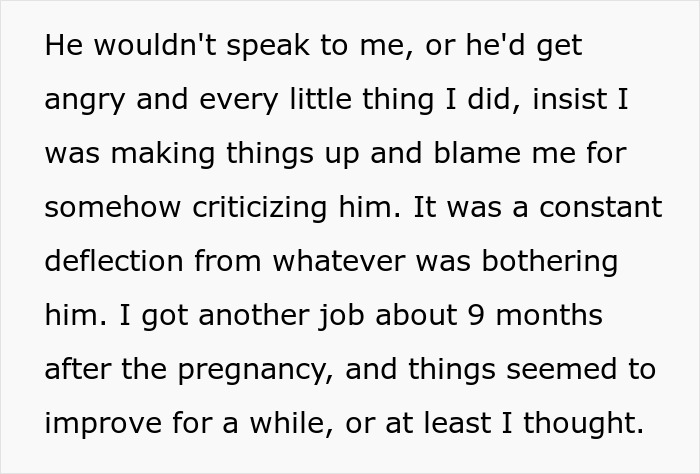
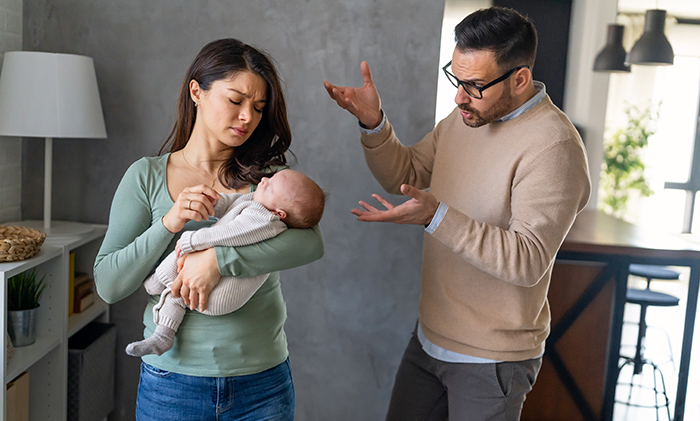
Image credits: nd3000 / envato (not the actual photo)
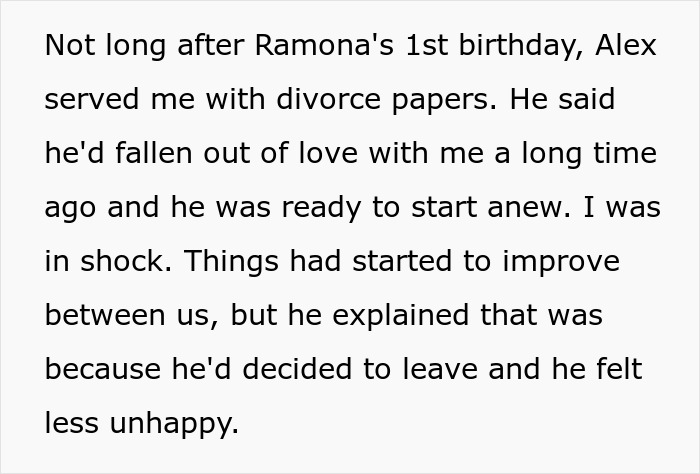
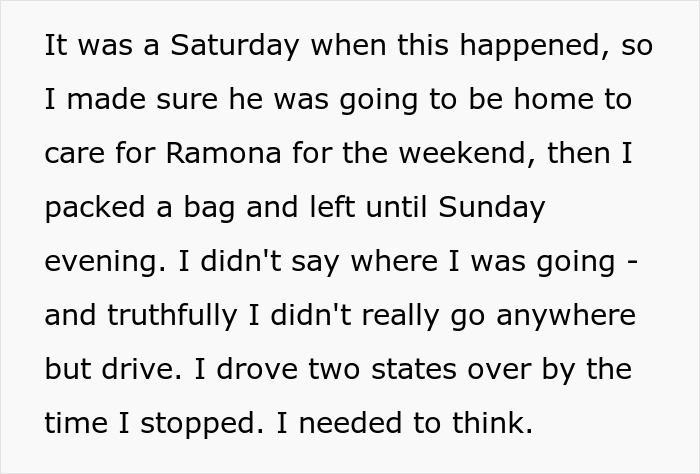
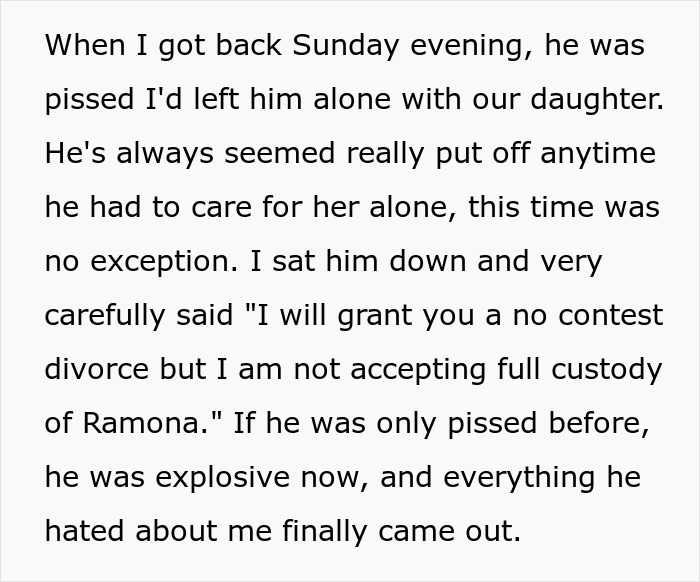
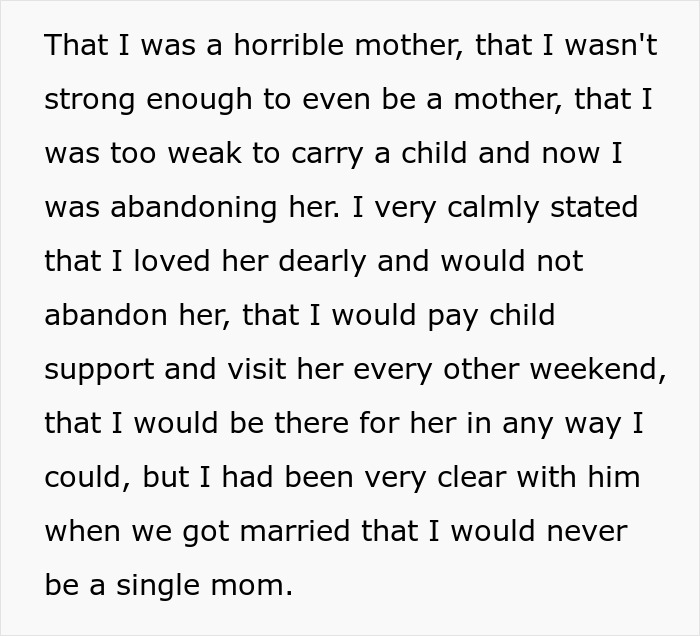
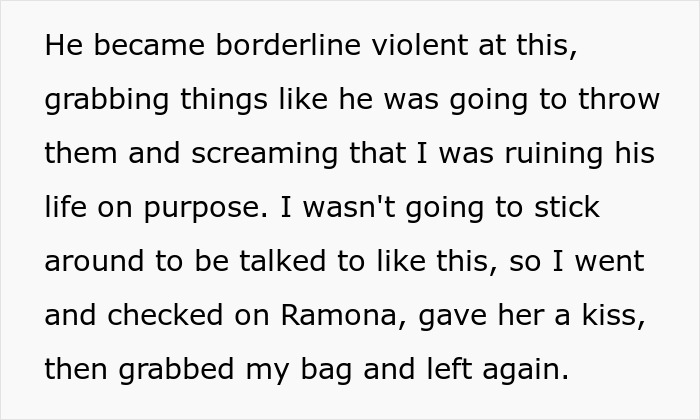
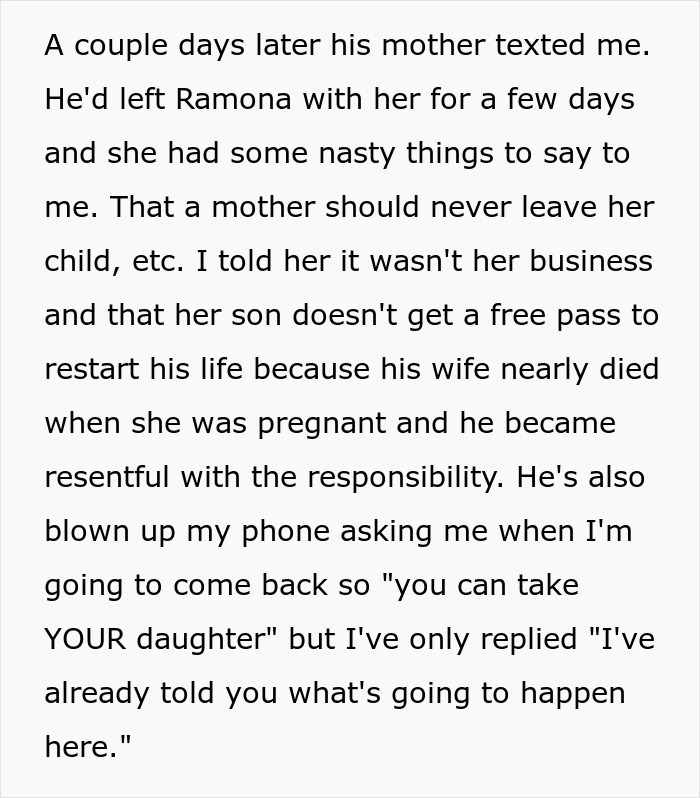
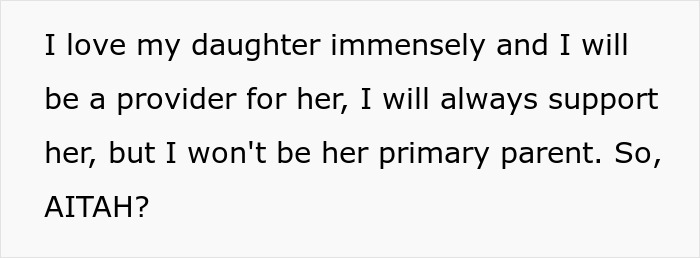
Image credits: Budget-Fishing7420
The number of non-custodial mothers is growing
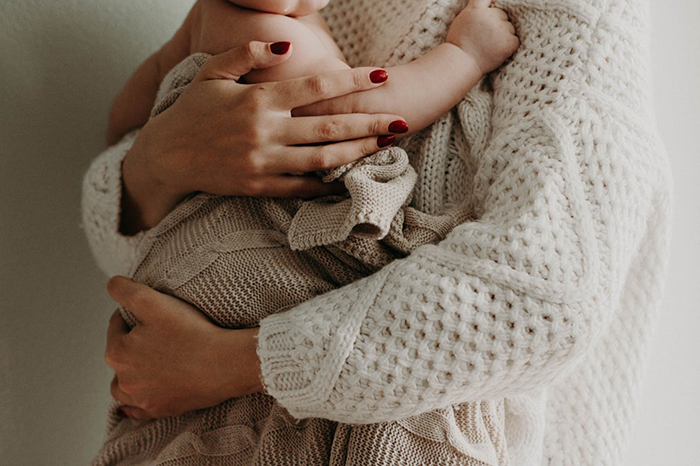
Image credits: Kristina Paukshtite / pexels (not the actual photo)
Even though most women work and earn similarly to men, even outperforming them in some ways, they are still the ones who primarily care for their children. In fact, they spend at least twice the amount of time than men do trying to juggle childcare and household responsibilities in addition to their personal activities.
In the case of divorce, 2018 data shows that almost 80% of the time custodial rights are passed down to women. It’s a 2.6% decline from 2014, showing that the number of non-custodial mothers is growing.
Despite paying more in child support than fathers (almost double) and being significantly less likely to abandon their children after divorce, female parents are still seen as horrible mothers when they give up their children’s custody rights. Unfortunately, over 2 million non-custodial mothers in the US have to live with such a perception every day.
“I don’t believe it is ever fair to judge a woman (or a man) for giving up their custodial rights, whether they were pressured into becoming parents or not,” says Christina Rhyser, parental wellness educator, coach, and founder of Parental Burnout Center to Bored Panda. “Judging others for difficult choices only brings shame and division and pushes them further away from receiving any help they might need.”
Even though we might not approve of such behavior, no human should ever be stripped of respect, she says. We need to understand that sometimes the best thing a parent can do for their children is to let go of them.
“Having grace for one another is not the same as granting blanket approval for any/all behaviors. All choices have desirable and undesirable outcomes that must be accepted—but one of these outcomes should NEVER be being stripped of our inherent value as humans, who are always worthy of dignity and respect. Judgment has no place here.”
One reason why parents might feel the need to leave their children is parental burnout
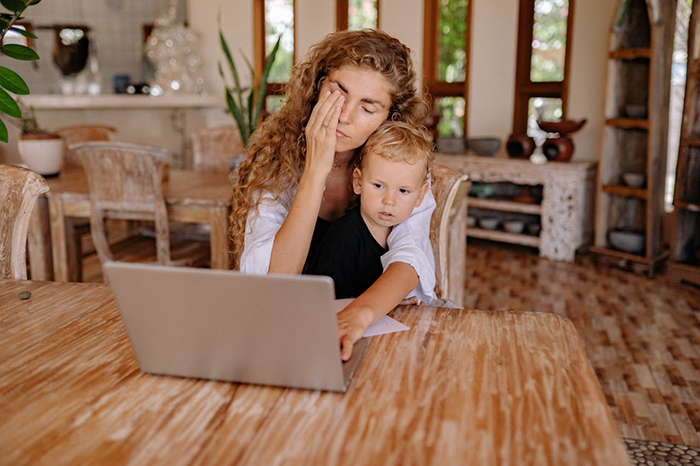
Image credits: Yan Krukau / pexels (not the actual photo)
One big reason why parents might feel the need to leave their children is parental burnout. “Parenthood is stressful enough as it is when freely chosen, but when obligation comes into play, the stress can become insurmountable and may ultimately lead to child abandonment (among other risks),” explains Rhyser.
“Parental burnout is a real, diagnosable (and treatable) syndrome caused by trying too hard for too long to manage too much parenting stress without enough resources. Emotional exhaustion; emotional distancing from our kids; and a lost sense of joy and fulfillment in the parental role are three main symptoms,” she says.
More extreme cases of burnout can manifest in yelling and uncontrolled outbursts, feelings of exasperation and confinement, longing for a different lifestyle, fantasizing about ways to escape from their families, as well as self-harm and substance abuse. “It’s no laughing matter, to say the least,” stresses Rhyser.
Often, people who surround mothers aren’t any help either. They are often guilty of providing advice like “Just take a nap,” “Be more patient,” “Stop freaking out,” “Keep pushing through,” or “Enjoy it while you can.”
“If only it was that easy,” says Rhyser. “What if she needs more help than that? What if she needs an extended break? What if she doesn’t want to be a mom anymore? We need to be able to ask and answer these questions without fear of condemnation
and judgment.”
Rhyser stresses that it’s important that we acknowledge that all women are unique, individual human beings whose needs, desires, and contributions matter the exact same as anyone else’s. “Choosing to become—or not to become—a mother is possibly the most personal and life-changing decision to be made. To allow women the freedom to make this choice for themselves is a matter of human dignity at its most fundamental level.”
The author provided more information in the comments
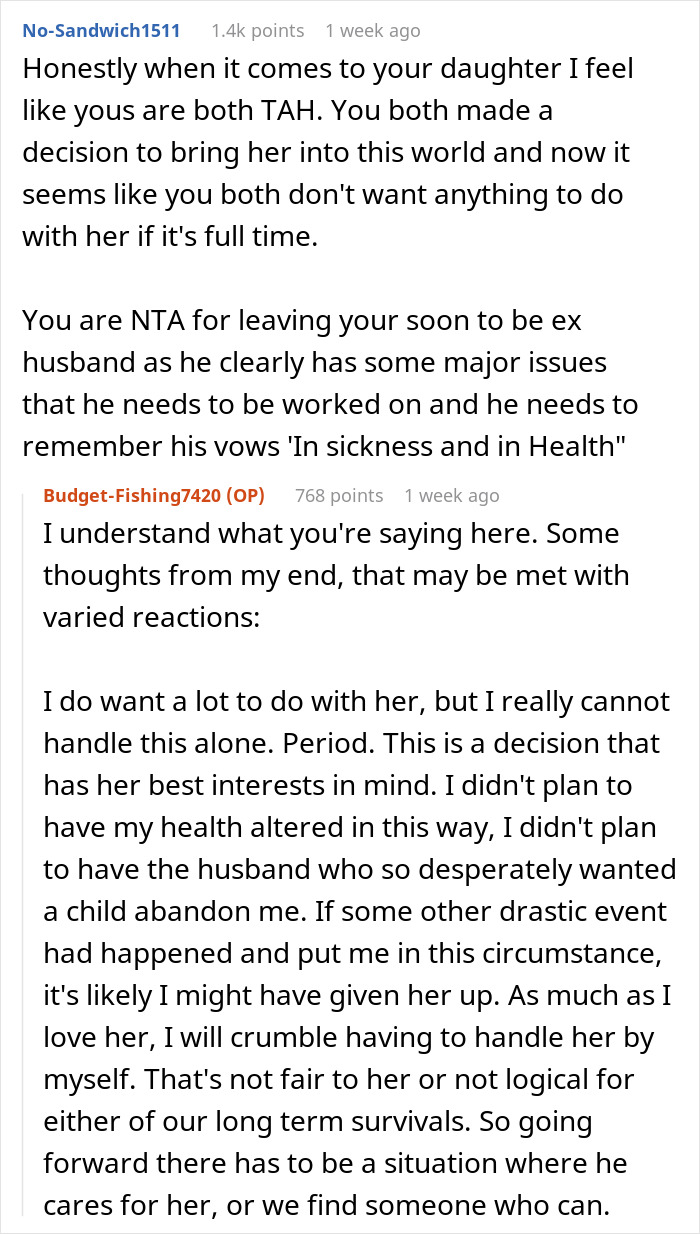
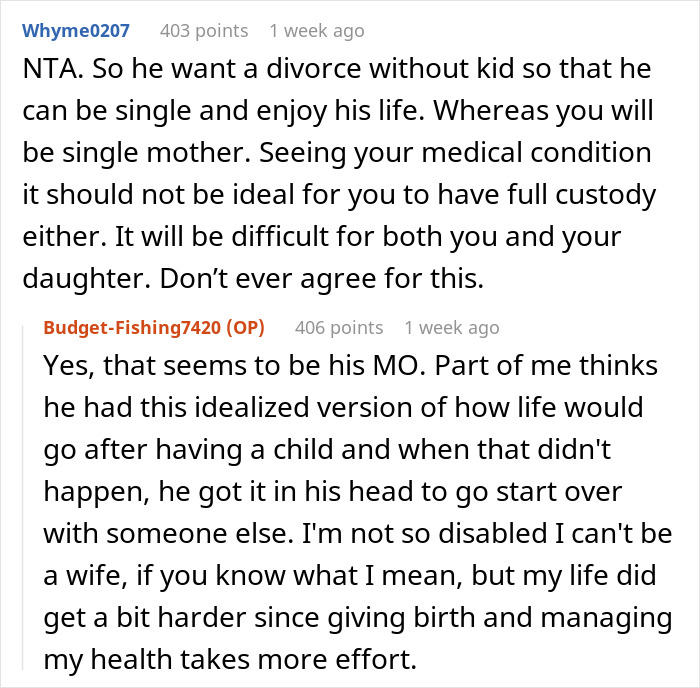
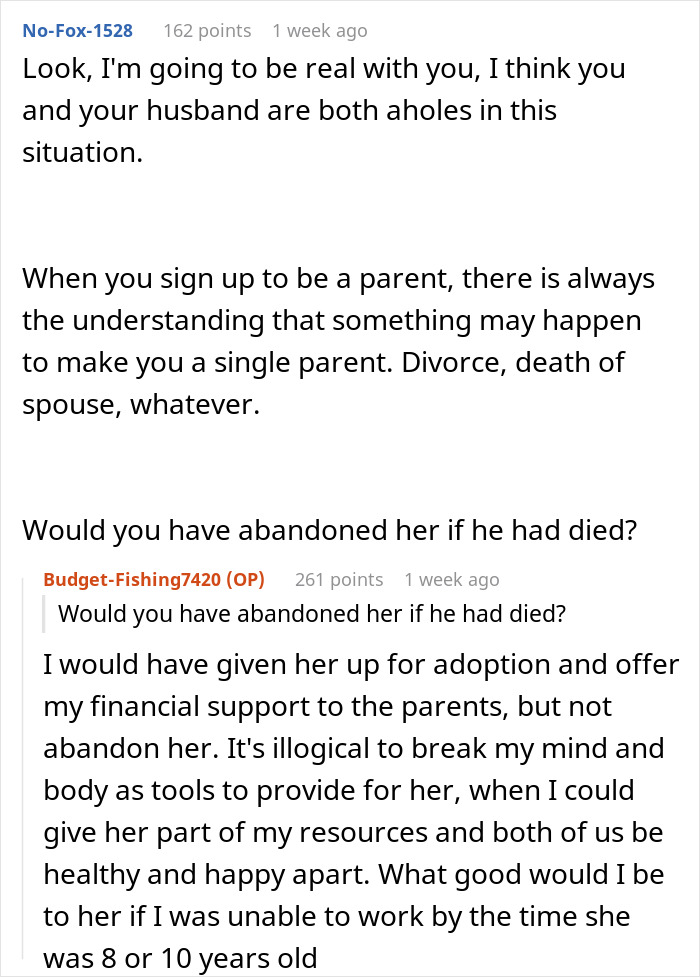
A lot of eaders felt bad that the child has such parents

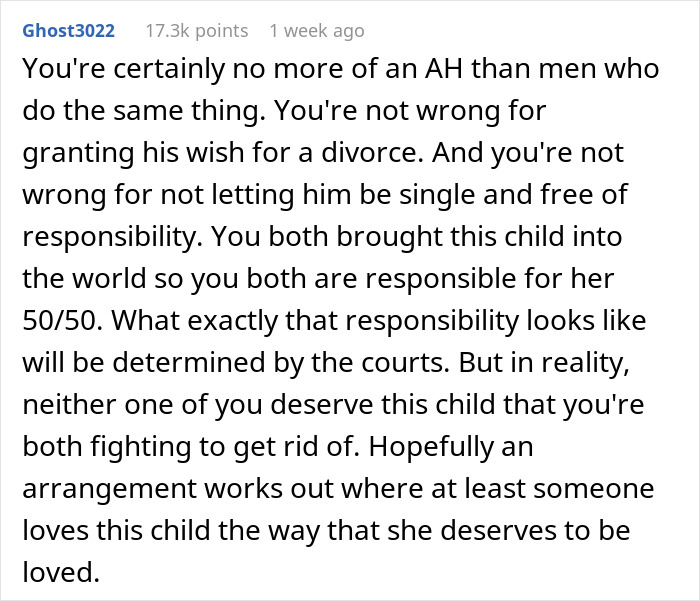
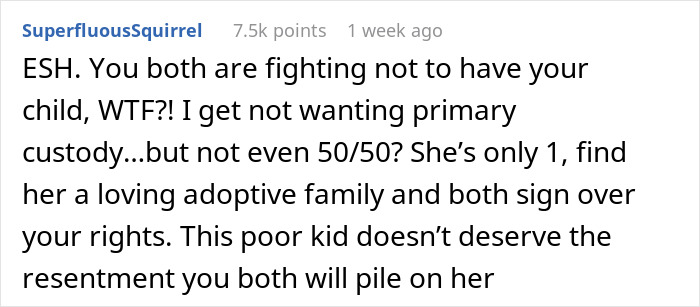
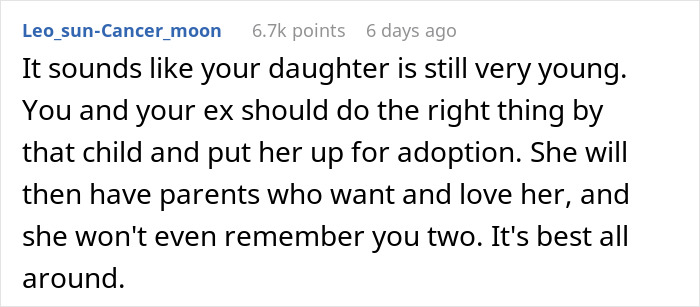



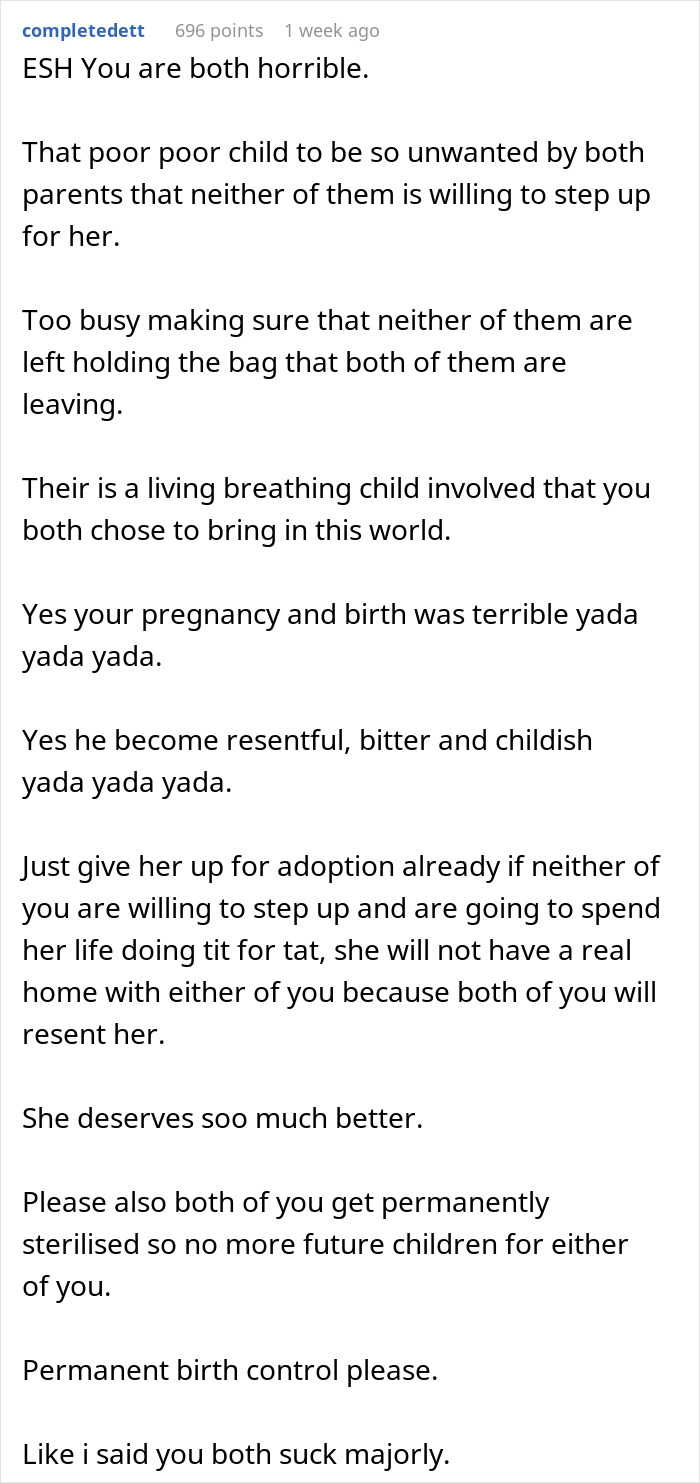

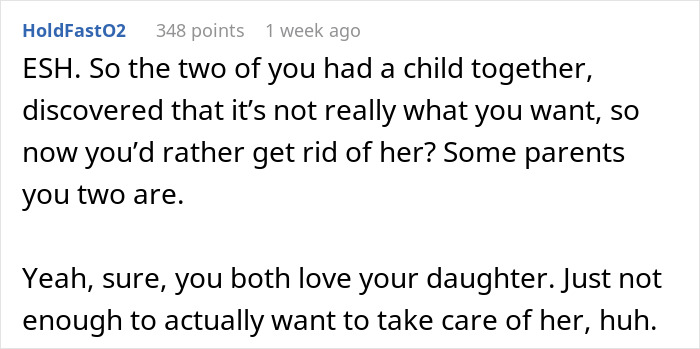
Some were more empathetic towards the mom
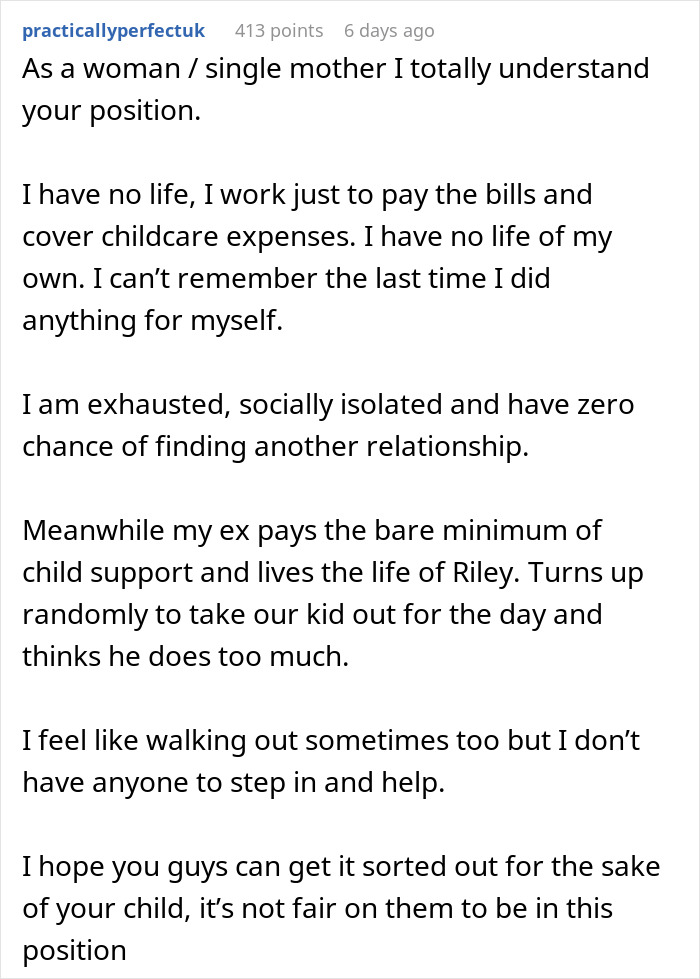

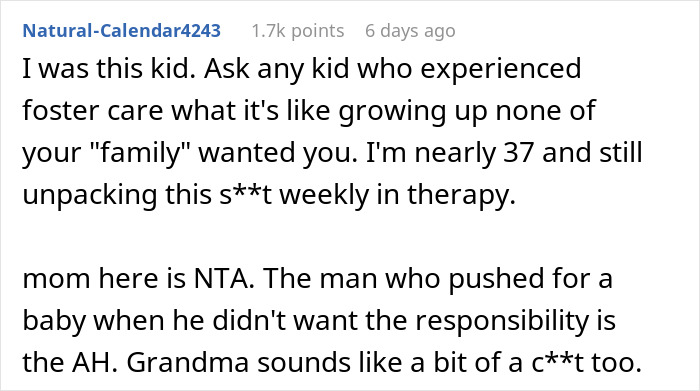
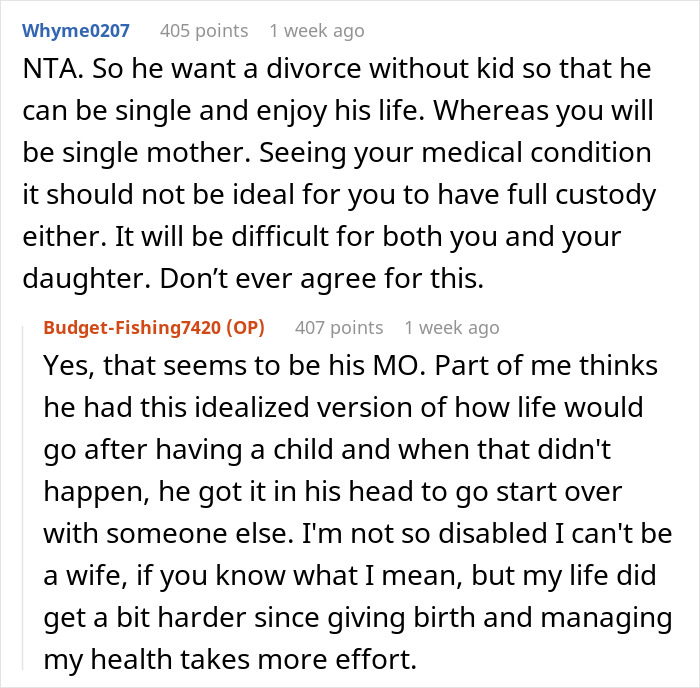
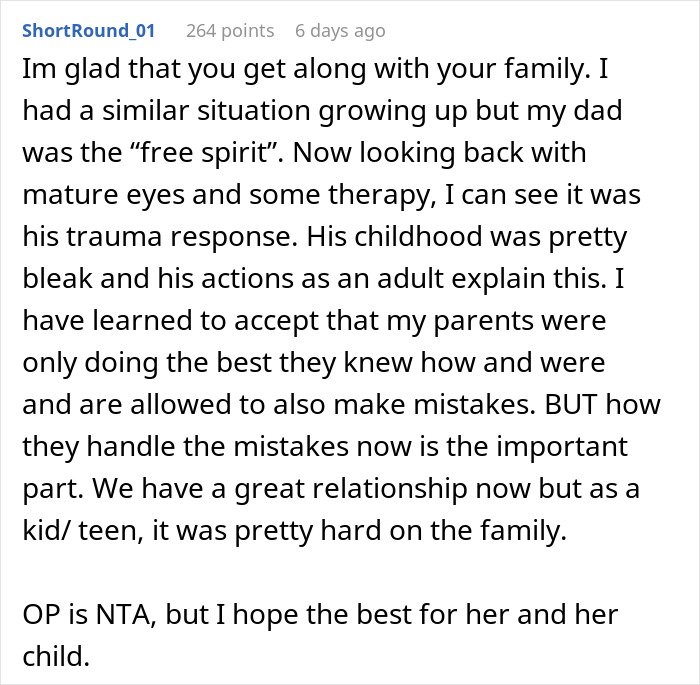
While others thought she was the jerk
